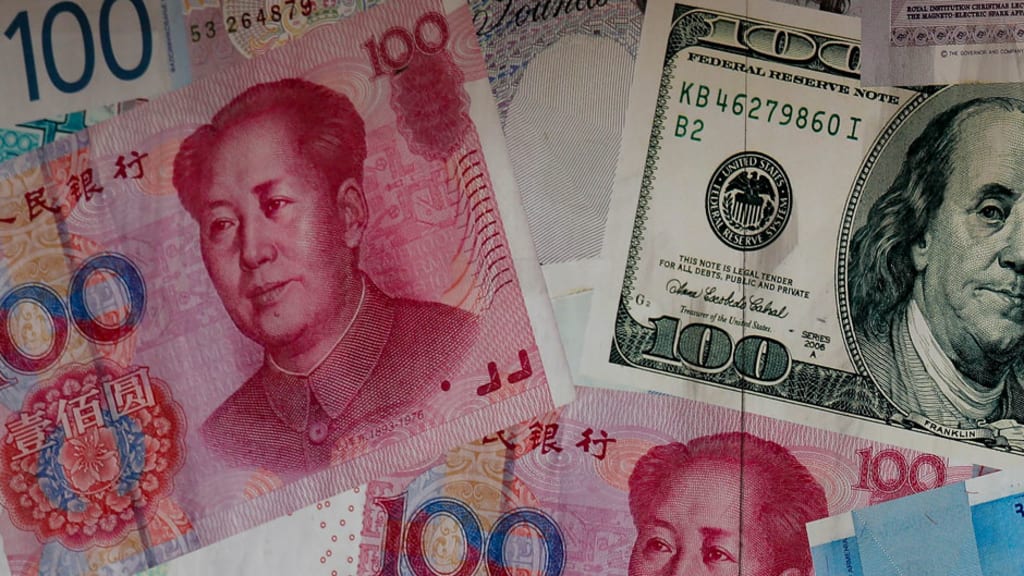China’s VCs look to the Middle East for a U.S. dollar lifeline
China's venture capital (VC) industry has experienced rapid growth and has become a significant player in the global startup ecosystem.

China’s VCs look to the Middle East for a U.S. dollar lifeline
China's venture capital (VC) industry has experienced rapid growth and has become a significant player in the global startup ecosystem. However, recent regulatory challenges and geopolitical tensions have posed obstacles for Chinese startups seeking funding. In response, Chinese VCs are turning their attention to the Middle East as a potential source of U.S. dollar investments. This article will explore the reasons behind this shift and the implications it holds for both China and the Middle East.
Table of Contents
Introduction
The Rise of China's Venture Capital Industry
Regulatory Challenges and Geopolitical Tensions
Seeking a U.S. Dollar Lifeline
The Middle East as an Investment Destination
Opportunities and Benefits for China
Implications for the Middle East
Conclusion
FAQs
1. Introduction
In recent years, China's VC industry has witnessed extraordinary growth, fueling the development of numerous innovative startups. However, tightening regulations and strained relations with the United States have made it increasingly difficult for Chinese startups to secure funding. As a result, Chinese VCs are exploring alternative avenues, with the Middle East emerging as a promising destination for U.S. dollar investments.
2. The Rise of China's Venture Capital Industry
China's VC industry has experienced remarkable growth in the past decade, fueled by a combination of government support, abundant capital, and a thriving entrepreneurial ecosystem. Chinese startups have attracted substantial investments, leading to the emergence of unicorns and tech giants in various sectors, including e-commerce, fintech, and artificial intelligence.
3. Regulatory Challenges and Geopolitical Tensions
Despite the initial boom, China's VC industry now faces significant challenges. The Chinese government has implemented stricter regulations to address concerns regarding financial stability and security. Additionally, escalating geopolitical tensions, particularly with the United States, have resulted in increased scrutiny of Chinese investments and technology transfers.
4. Seeking a U.S. Dollar Lifeline
The dominance of the U.S. dollar in international finance makes it crucial for Chinese startups to access U.S. dollar-denominated funding. However, the regulatory landscape and tensions with the United States have made it challenging for Chinese VCs to secure such funding domestically. Consequently, they are turning to the Middle East, which has substantial sovereign wealth funds and a growing appetite for tech investments.
5. The Middle East as an Investment Destination
The Middle East presents an attractive opportunity for Chinese VCs seeking U.S. dollar investments. The region's sovereign wealth funds, such as the Abu Dhabi Investment Authority and the Saudi Arabian Public Investment Fund, possess significant financial resources and are actively looking to diversify their portfolios. These funds are particularly interested in technology-driven sectors and have expressed a willingness to invest in Chinese startups.
6. Opportunities and Benefits for China
By tapping into the Middle East's investment landscape, Chinese VCs can overcome the challenges posed by domestic regulations and strained international relations. Partnering with Middle Eastern investors enables Chinese startups to secure crucial U.S. dollar funding, facilitating their expansion and global ambitions. Moreover, the collaboration between China and the Middle East can foster technology transfer, knowledge exchange, and cross-cultural collaboration.
7. Implications for the Middle East
The Middle East's collaboration with China's VC industry offers several advantages for the region. By investing in Chinese startups, Middle Eastern countries can access cutting-edge technologies and innovation, supporting their own economic diversification efforts. Additionally, partnering with Chinese VCs strengthens ties between the Middle East and the world's second-largest economy, opening up opportunities for trade and collaboration beyond the tech sector.
8. Conclusion
The shifting dynamics in China's VC industry have led Chinese investors to explore alternative funding sources. The Middle East's growing interest in tech investments and access to U.S. dollar liquidity makes it an attractive destination for Chinese VCs. This trend not only provides a lifeline for Chinese startups but also brings mutual benefits and opportunities for collaboration between China and the Middle East.
FAQs
1. Why are Chinese VCs turning to the Middle East for funding?
Chinese VCs are seeking alternative funding sources due to tightening regulations and geopolitical tensions. The Middle East offers access to U.S. dollar investments, which are crucial for Chinese startups.
2. What advantages does the Middle East offer for Chinese VCs?
The Middle East possesses significant sovereign wealth funds actively seeking to diversify their portfolios. By partnering with Middle Eastern investors, Chinese VCs can secure U.S. dollar funding and overcome regulatory challenges.
3. How does the collaboration between China and the Middle East benefit both parties?
Collaboration between China and the Middle East fosters technology transfer, knowledge exchange, and cross-cultural collaboration. It also strengthens economic ties and opens up opportunities for trade and collaboration beyond the tech sector.
4. What challenges does China's VC industry face domestically?
China's VC industry faces stricter regulations aimed at addressing financial stability and security concerns. Geopolitical tensions, particularly with the United States, have also resulted in increased scrutiny of Chinese investments.
5. How can Middle Eastern investments support economic diversification in the region?
Investments in Chinese startups allow Middle Eastern countries to access cutting-edge technologies and innovation, supporting their own efforts for economic diversification and reducing dependence on traditional sectors.





Comments
There are no comments for this story
Be the first to respond and start the conversation.